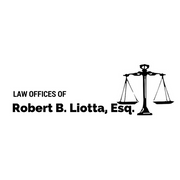What’s the Difference Between Revocable & Irrevocable Trusts?

As you age and acquire assets and investments, you need a legal framework to protect the rights of your spouse and family to your wealth after you pass away. A trust is one of two primary estate planning tools—the other being a will—families use to safeguard their financial security. Although both are legal declarations that define how you want property distributed to heirs and beneficiaries, only a trust allows you to avoid probate—a court-administered process of transferring property after death. Here’s a brief explanation of how revocable and irrevocable trusts may best serve you.
A Guide to Understanding Trusts
Trusts
An estate planning attorney helps families establish trusts to reduce the impact of taxes, probate costs, and long-term care expenses. In establishing one, a grantor—the creator of the trust—transfers ownership of assets to the trust.
You must still draft a will to name who will handle your affairs after you pass away, make bequests, pay debts, and distribute any property retained in your name. Because beneficiaries are required to pay taxes on estates valued above certain levels, any assets owned by a trust reduces the size of your estate and the taxes your family may owe when they inherit.
Revocable Trusts
 A revocable trust is also known as a living trust because grantors retain the rights to alter the terms while they live. In many cases, grantors name themselves as trustees and continue managing trust assets. At death, management passes to a named successor.
A revocable trust is also known as a living trust because grantors retain the rights to alter the terms while they live. In many cases, grantors name themselves as trustees and continue managing trust assets. At death, management passes to a named successor.
If all your assets are owned by the trust, your estate avoids the costs and delays associated with probate, details of your wealth remain private, and taxes are minimized. Once a will is probated, all its contents become public record.
Irrevocable Trusts
Once you transfer property to an irrevocable trust, it can’t be undone. A principal advantage of this option is preserving assets from creditors, the IRS, and nursing facilities. Once created, an irrevocable trust can’t be modified because the property in it no longer belongs to the grantor.
If you pass away with unpaid debts, a creditor has no right to seize any of the trust’s property. Similarly, assets held in an irrevocable trust reduce a family’s estate tax burden.
In a recent year, the median cost for a private room in a nursing home was over $100,000 per year. To qualify for assistance from Medicaid to pay for long-term care, families may choose to establish an irrevocable trust to avoid exhausting their assets to pay for long-term stays in a nursing home.
If you want to add a trust to your estate plan, consult the Law Offices of Robert B Liotta, Esq., in Lower Burrell, PA. This firm serves families across West Moreland, Allegheny, and Armstrong counties. Visit them online for an overview of their approach to estate planning, or call (724) 334-9870 to discuss your end-of-life preferences with an experienced attorney.
About the Business
Have a question? Ask the experts!
Send your question

